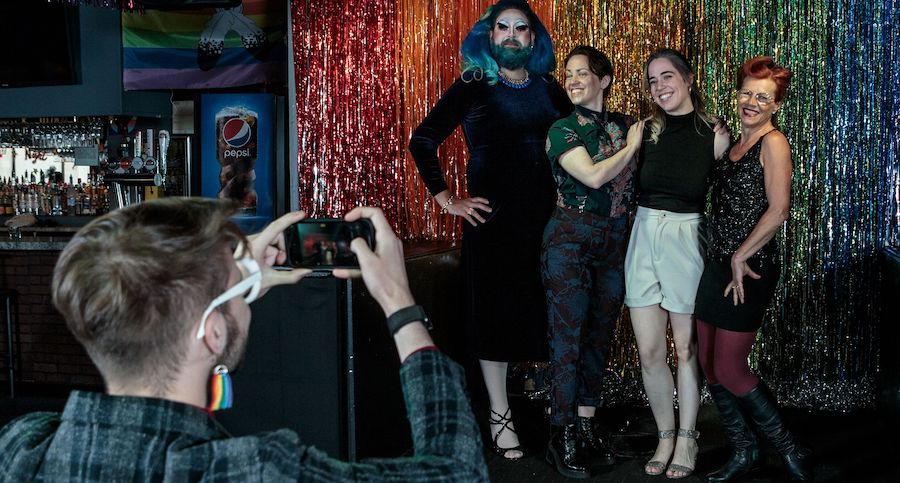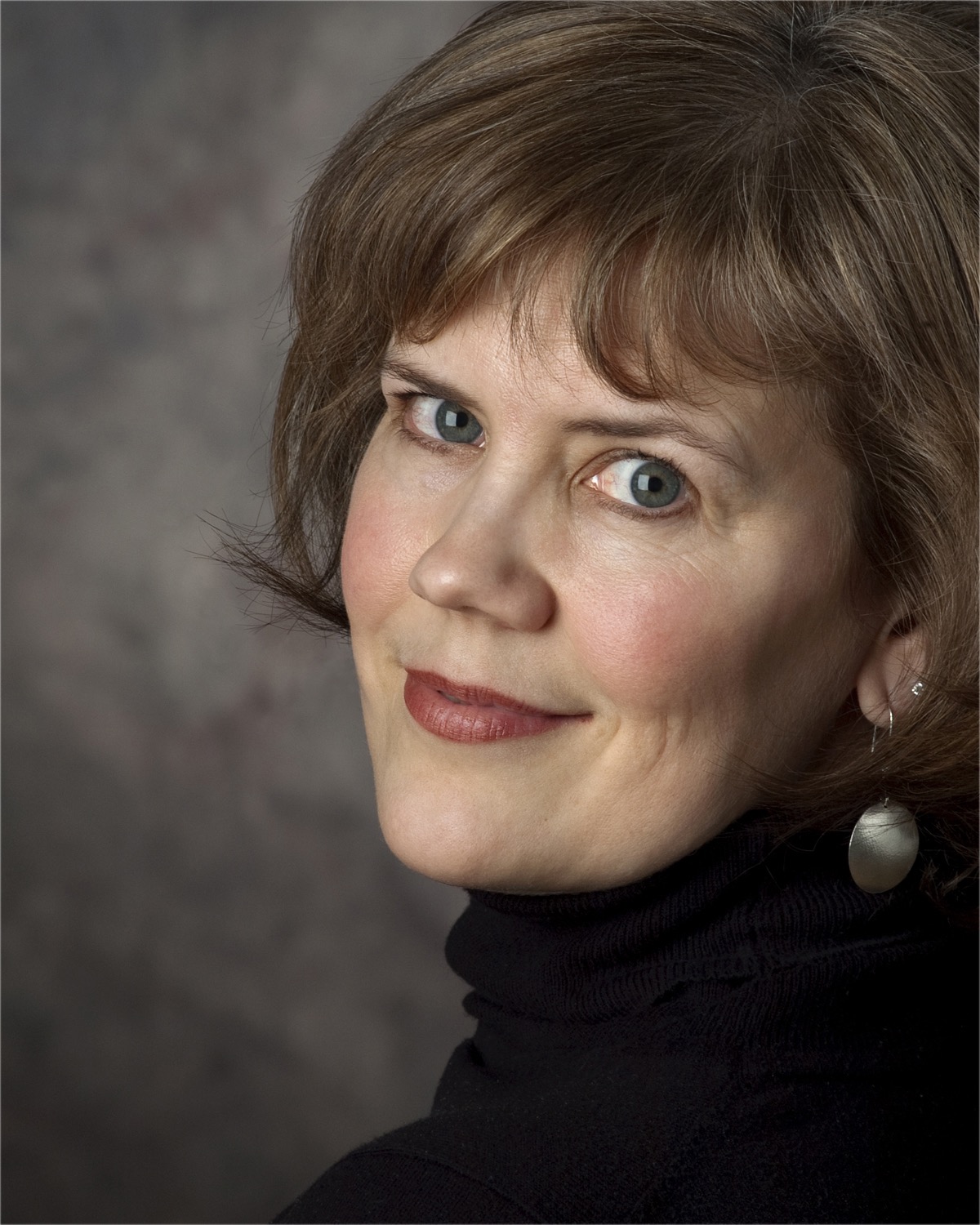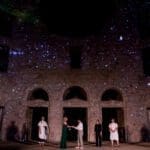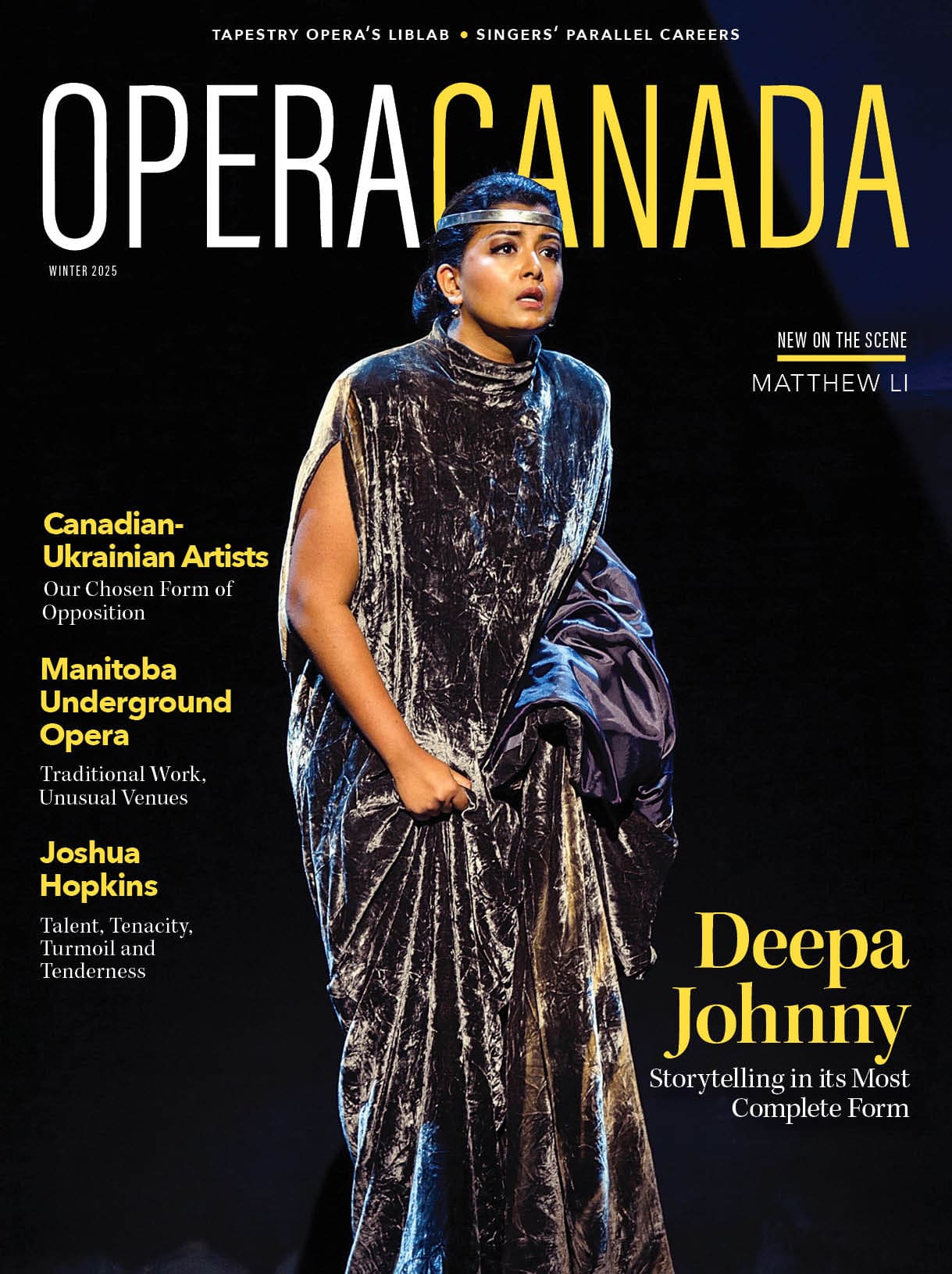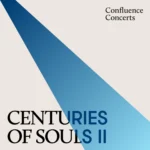Manitoba Underground Opera took a deep dive into the bonds of matrimony this summer with its 2022 Summer Festival titled For Better or Worse, presented repertory style between August 18-27, completing a two-year, nonetheless pandemic-interrupted series that initially launched in August 2019. The adventuresome troupe co-founded in 2008 by Moose Jaw, SK-born general manager Brendan McKeen with Artistic Director Brenna Corner, as with arts groups around the globe, pushed pause on programming in 2020, with this year’s line-up proving even a global pandemic couldn’t thwart its appetite for pushing creative boundaries and taking artistic risks in a “New Normal” age.
This year’s cornerstone production transplanted Mozart’s The Marriage of Figaro to “Club 200,” hailed as one of Canada’s longest running LGBTQ bars complete with mirror ball and disco vibe à la Studio 54 for the contemporary retelling of the madcap opera buffa set to Lorenzo Da Ponte’s libretto.
Diane Speirs led a three-piece orchestra comprised of violinist Sonia Lazar, bassoonist Scott Miller with pianist/répétiteur Shannon Hiebert throughout Mozart’s ear-pleasing score of “hits” performed in English, with a few early balance issues between singers and keyboard quickly resolving. A nice touch became opening with a loud ‘n’ proud, pulsating disco track of Mozart’s iconic overture, the bled into the live musicians.
Dawson Creek, BC-based stage director Adam Da Ros, who also helmed MUO’s 2017 production of Idomeno and a re-envisioned Dido | Aeneas in 2019, stripped away nearly 2/3 of the original, typical three-hour opera including its chorus to create a leaner, meaner 90-minute show (including intermission), that skimmed along seamlessly with its narrative thread remarkably still intact. A few too many “F-bombs” laced into the characters’ spoken dialogue in lieu of sung recitatives felt too much of a good thing, arguably distracting from the storyline despite providing irrefutable colour and versimilitude of after-hours nightlife.
With a fine nine-member cast in place, there were many brilliant moments that offered sage commentary on topical issues, including power differentials and sexual harassment in the workplace. The Count (lyric baritone Henry Chen) portrayed as the club’s owner used his booming vocals to bully and berate his serving personnel including Susanna (soprano Chelsea Kutyn) and Basilio (tenor Kyle Briscoe), as well as long-suffering wife, Countess (soprano Karen Santos). More nuance in his characterization would have fleshed out his principal role even more compellingly.
Even more striking and in tune with the times was Da Ros’ choice to cast a woman, here mezzo-soprano Heather Molloy as a combat boot-kitted Figaro, who delivered an unflinching portrayal as she plans her same-sex nuptials with her beloved Susanna. Her tongue-twisting interpretation of Act IV’s “Aprite un po’ quegli occhi,” became an overall show highlight.
Mezzo-soprano Hailey Witt in the traditionally trouser role of lovesick Cherubino—now self-identifying as “they/them/their”—also treated listeners to a charming Act II “Voi che sapete,” further underscoring today’s ethos of gender fluidity. These thoughtful choices injected a quasi-subversive quality into the entire show for which one can only imagine the Wunderkind cackling with glee.
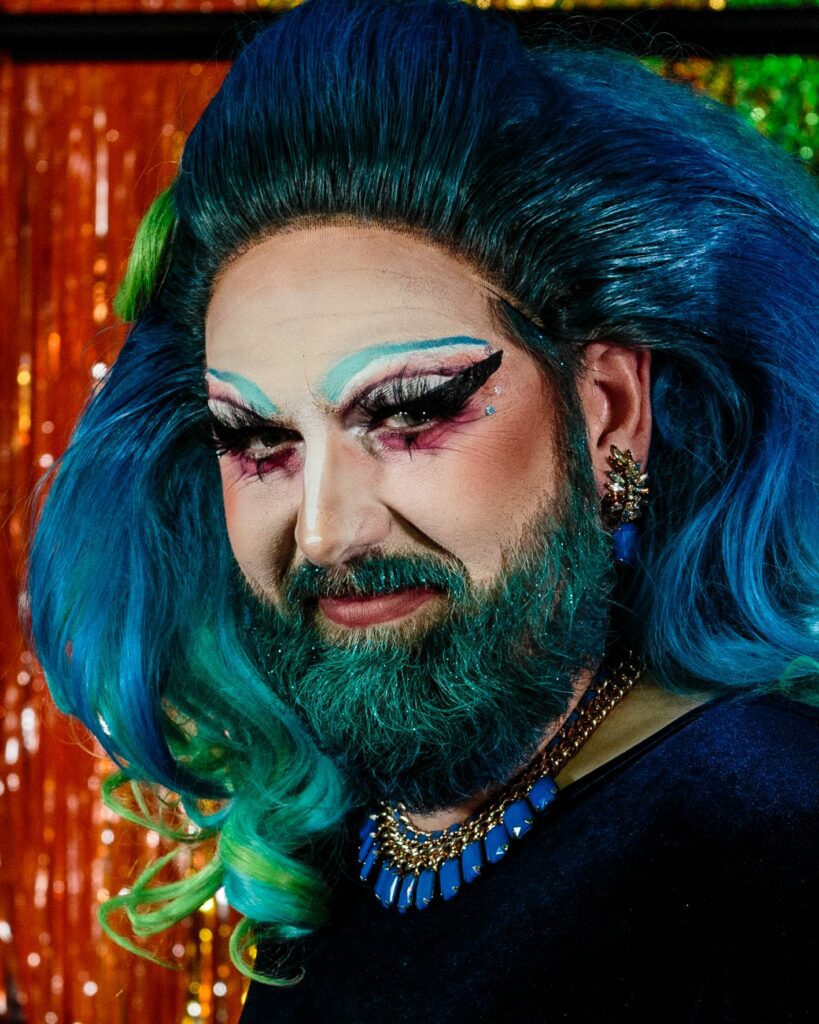
Matthew Pauls, Bartolo. Credit for the look, Jolean Groundbeef Ⓒ Paul McKeen
Baritone Matthew Pauls as Bartolo, while costumed in striking full drag queen regalia including sky-high stilettos credited to designer Jolean Groundbeef, missed the golden opportunity to really bring his character to life cohesively with his apparel. Performers need to take full ownership of their roles—no matter how flamboyant or demure—and despite all brave attempts, the singer’s relatively restrained portrayal did not go nearly far enough in terms of wildly theatrical potential during the show’s final performance on August 27. This became mitigated by mezzo-soprano Rosemarie van der Hooft—known around town for her sublime oratorio performances—now garbed in go-go boots and thigh-high mini-skirt who took full command of her Marcellina.
One of the show’s most potent moments came during Santos’s deeply lyrical “Porgi, amor.” As the Countess sang of her searing pain over her husband’s infidelities, she edged closer to the club’s real-life bar; this image creating a harrowing sub-text on how life’s heartbreaks can propel one down the rabbit hole of substance addiction. Having the all-immersive opera play out among viewers, as well as on the dance floor thus breaking the fourth wall also featured cast members, in role, clearing tables and sanitizing handrails during two brief breaks. And sure enough, the glittery mirror ball lit up for the final wedding party scene, with audience members invited to shake their booty and dance.
In stark contrast, the MUO also presented Gluck’s mythological “reform” opera, Orphée et Eurydice, stage directed by Jacqueline Loewen and staged al fresco among the ruins of the historic St. Boniface Cathedral. Performing the opera’s later 1774 French version, originally based on Ranieri de’ Calzabigi’s libretto, including its travesty role of Orphée now sung by tenor James McLennan, proved an organic choice for its four performances taking place in the heart of Winnipeg’s Francophone community.
The seven-piece orchestra, including répétiteur Lee Houghton Stewart under the baton of Grant Harville quickly adjusted to a few perilous moments of singers being out of sync with the ensemble.
Despite the challenges of performing in blistering 32C temperatures—apropos for the fires of hell—McLennan, in notably a role debut immediately set the tone with his intensely dramatic acting skills; first appearing wracked with grief for his deceased wife that quickly established their emotional relationship, in turn fueling the entire (streamlined) 96-minute, three-act opera. He also displayed his innate lyricism during Act I’s “Objet de mon amour/Chiamo il mio ben,” as gentle breezes billowed his robes, or his later, heartbreaking Act 3 aria “J’ai perdu mon Eurydice/Che e faro senza Euridice?” Not least of all, the tenor further showed off his technical bravura during Act I’s “L’espoir renait dans mon ame,” dazzling with quicksilver runs and ornamentation in the showstopper ariette Gluck subsequently added to the opera’s 1762 Italian forerunner, Orfeo ed Euridice.
Lyric coloratura soprano Christina Thanisch-Smith crafted a radiant Eurydice, striking just the right chord between regal mythological presence and all-too-human vulnerability as she grows increasingly distraught with her husband’s refusal to gaze upon her as they escape the Underworld. Thanisch-Smith displayed shimmering vocals with pitch perfect intonation during Act 3’s “Fortune ennemie/Che fiero momento,” her crystal clear voice caressing the ear with ringing high notes, as well as sensitively balancing with McLennan during their duet “Viens, suis un epoux qui t’adore/Vieni, appaga il tuo consorte.”
Olivia Kang as Amore, a.k.a. Cupid, with her lighter soprano voice first heard during Act I’s “Soumis au silence/Gli sguardi trattieni” made every moment of her relatively brief stage time count as the tale’s primary plot driver.
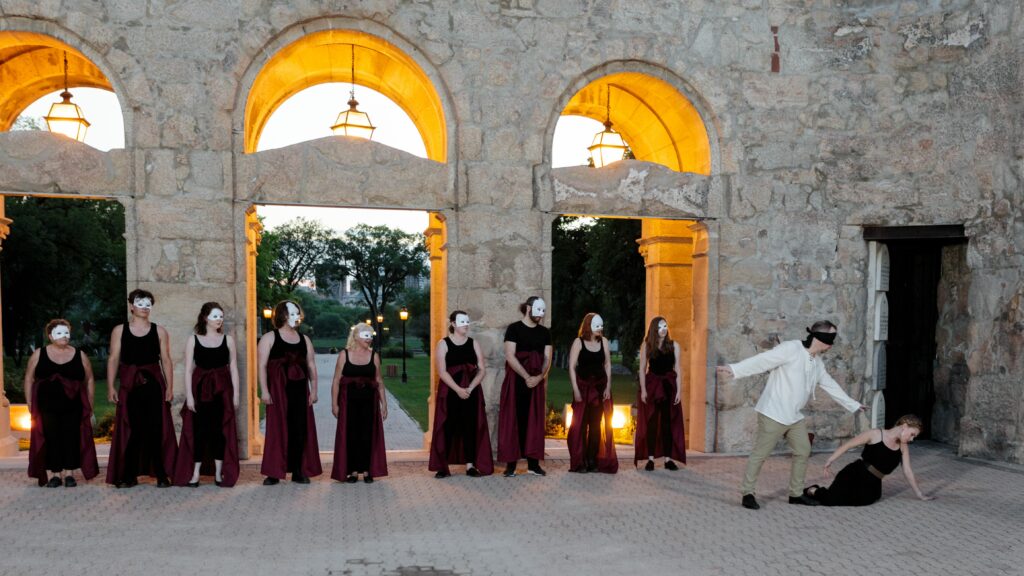
James McLennan, Orphée. With chorus Ⓒ Paul McKeen
What a pleasure to witness a chorus performing sans masks again. For the most part, the 12-member ensemble delivered each of its numbers with conviction despite at times less than crisp diction requisite for outdoor performance. The Furies also needed to be more terrifying, with these demons of hell often too polite and pedestrian. Their canine-like sniffing of the air as they detect the arrival of Orphée was just plain goofy.
However when the entire ensemble raise their voices to the heavens for triumphant finale “Trionfi Amore,” one couldn’t help but reflect on the past three years of COVID-19’s own inflicted purgatory, thankful to be back, and for all that which makes the world go ‘round.


